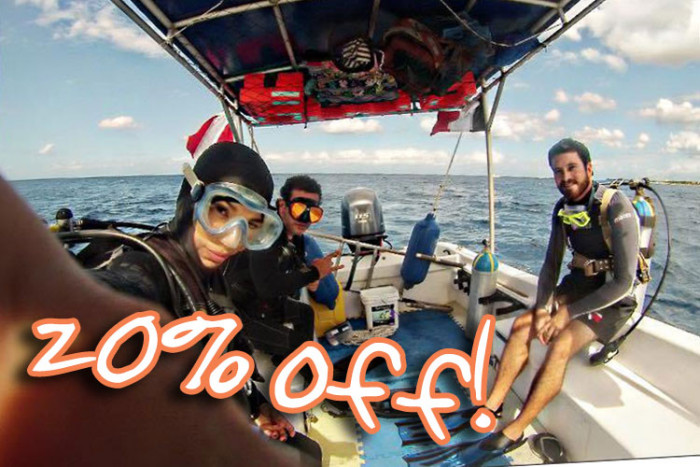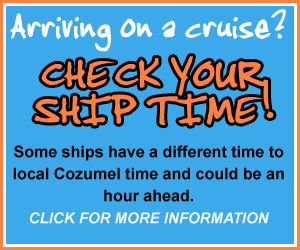It would be very bold and possibly even ridiculous to claim the media has done more damage to Cozumels tourism economy than Hurricane Wilma. But, thats what the media does: it makes bold assertions, posts sensational headlines and makes claims that may have some basis in fact, but are often quite ridiculous.
When the press covers a natural disaster, fact is even more difficult to separate from fiction. Physical circumstances can make it very difficult for journalists to get reliable firsthand information and rumours are rife when communication is limited. Some of the chismes about damage that were circulating the island in the days after Wilma are evidence of this. We humans like to gossip.
If a journalist comes across such rumours and then spices them up some more for mass consumption, the result can be subjective and sensational stories containing little truth.
And when wrong it is unlikely to get corrected. If errors are made in a story about a corporation, the corporation is able to respond and corrections may be made. But if errors are made about a natural disaster, who is going to respond and ask that the story be corrected? Perhaps Mother Nature needs a spindoctor?
In Cozumel's case, authorities and officials did a good job trying to correct domesday stories, but with limited communication and resources they could not possibly cover all media.
Stories about Cozumel during and immediately after the hurricane often made terrifying reading, with reports that Cozumel had been "flattened" or "wiped off the map". The truth was that Cozumel was badly hit, but definitely not wiped out. Let's not downplay the seriousness of the disaster, tragically people died, but that is different to an island disappearing off the face of the planet.
These stories are understandable because sensation sells papers and improves ratings. "Cozumel badly damaged" is not as exciting to the ear as "Cozumel completely under water". Rightly or wrongly, the media will often exaggerate and can claim everything is subjective anyhow.
Another real problem is that most news organisations have not written follow up reports about the fantastic recovery since. This leaves an impression - in the minds of thousands - that Cozumel was hit by a hurricane and is still a disaster zone. Not very helpful for tourism, nor for the people of Cozumel that rely on it.
Reuters was one of the few international news organisations to send a reporter to Cozumel to write a follow up story. They came back a week after the first cruise ships returned. Downtown was cleaned up and in party mode, the mood was proud and optimistic and returning tourists were having a fantastic time. Yet, they wrote a story that opened: "at first glance [the island] looks like the site of a nuclear explosion" and promptly listed the damage they saw.
To be fair, the story went on to be optimistic in places, but still made big errors such as saying that only a "handful" of cruise ships had returned when in fact around 10 had already visited and 18 more were expected the following week. They also said that most tourist attractions were closed, when the truth was that almost all were open.
Simple factual errors like these, along with "nuclear explosion" references, are wrong and damage the island by discouraging tourists who would return if only they knew the truth.
Reuters of course is just one example. Other organisations have a similar approach. CNN ran stories about efforts to evacuate US tourists immediately after the hurricane, but then lost interest and have not covered the recovery since. The BBC's reporting was less hysterical, but still centred on the damage immediately after Wilma with no positive news about the recovery just weeks later.
Sadly, when Reuters, CNN and the BBC were asked to comment they declined or simply refused to respond. It seems the media are immune to self-inspection and even if Mother Nature had a spindoctor she still may not have a 'right-to-reply'.
The way the media works is not likely to change. They have to compete hard commercially and it seems that sensational headlines and disaster stories are more popular with the public than balanced good news. Fact sometimes becomes a victim of spin and resources are not available for follow up stories - the media has a famously short attention span.
So, we have to accept this and work with it. Hopefully websites like this can help spread the good news, people that have been back to Cozumel can make firsthand reports on internet chat pages, and the authorities can try to package the positive news in a way that interests the mainstream media indeed, Cozumel has a PR agency in the USA doing this already.
Also, remember that there is often a silver lining to the media gloom. Next time you see bad news try to read between the lines. Skim off any sensational spin, search for the confirmed facts and ignore the speculation. Hopefully you'll discover that the news is not as bad as it seems...




